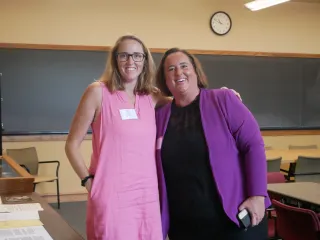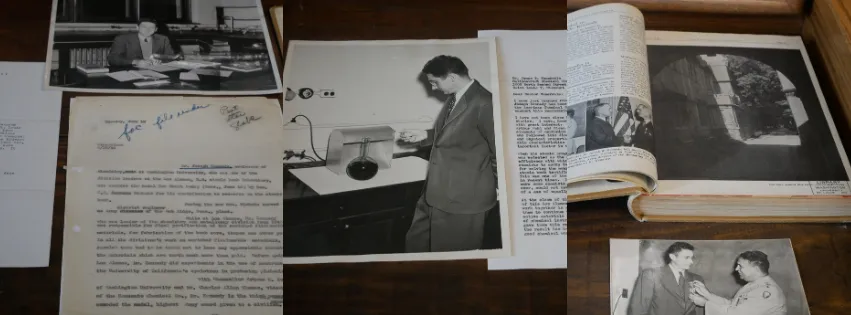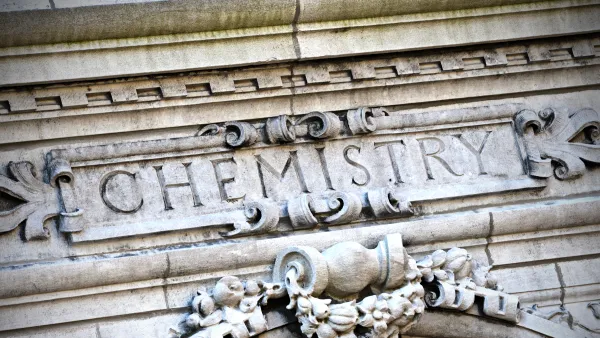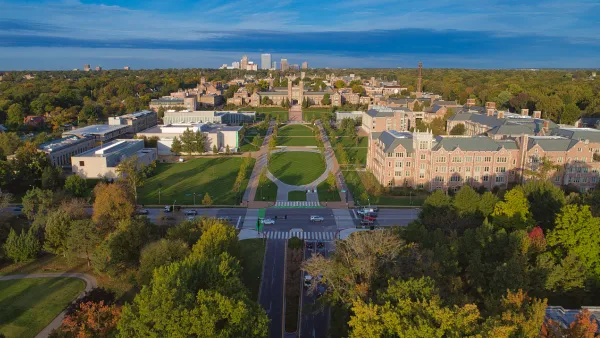On Tuesday, July 23rd, the Chemistry Department held a dedication of the display honoring Professor Joseph W. Kennedy's legacy to the Chemistry Department, WashU campus, and his contribution to the scientific community at large.

also joined the crowd for the event.
Along with his colleagues Arthur C. Wahl and Glenn T. Seaborg, Professor Kennedy made history in 1941 by discovering the element plutonium. Professor Kennedy served as chairman of the Chemistry Department at Washington University from 1946 - 1956. His research interests included determining the chemical properties of new elements and applying isotopic-tracer techniques to examine the diffusion of reaction kinetics. The Chemistry Department's annual Kennedy Lecture Series is also named after the professor.
During World War II, Professor Kennedy worked on the Manhattan Project and led the Chemistry and Metallurgy Division as the Division Leader from 1943 until 1945. In 1946, President Truman awarded Professor Kennedy the Medal of Merit, the highest civilian decoration of the United States. The Medal of Merit is now housed within the display.
As chairman of the Chemistry Department, Professor Kennedy modernized the teaching of general chemistry and introduced nuclear chemistry to generations of students and future scientists. A strong proponent of educational equality, Professor Kennedy also led efforts to make graduate school accessible to African American students a decade before the civil rights movement found traction.
The display, located in Wrighton Hall 400, includes Professor Kennedy's Medal of Merit, his publications, a letter from President Truman notifying Professor Kennedy of the Medal of Merit award, his personal wielding glass used to view Trinity (the first detonation of a nuclear weapon), and other historical and personal items.

Prof Joesph Ackerman (Emeritus Professor of Chemistry),
and Prof Ed Macias ( Provost Emeritus)





